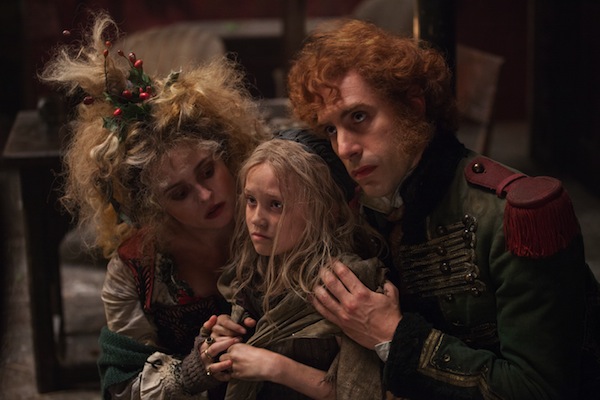
Valjean spends five minutes singing “Who Am I?” when it’s already clear he’s conflicted about letting an innocent man go to prison in his stead.

The internal monologue is made external when the audience already understands the message.

Sometimes intentions and feelings can be expressed with just a subtle look or simple line, but actors in musicals are required to burst into song and spell out everything they are feeling. Some of the issues I had with this movie are ones I have with musicals in general: The songs make everything too on the nose. Russell Crowe seems detached, his Javert is one note, and his singing voice sounded strained, not a good match for musical-theater-style songs. Amanda Seyfried looks beautiful as the older Cosette (Isabelle Allen plays the younger version) but is overshadowed by the stronger performances. Her performance made me weep.Įddie Redmayne and Samantha Barks, in her film debut, are fine as Marius and Eponine, respectively. Hathaway makes Fantine’s suffering startlingly raw, and sings “I Dreamed a Dream” in one long take with no cutaways, just the camera lingering on her naked face.
/GettyImages-479783168-6572090e85004212823f18dd3aa32cd0.jpg)
Jackman has a formidable voice and is a perfect Valjean, displaying talents not previously captured on the big screen. Ever tried doing that, when your throat is closing up? That’s why I appreciated hearing the gasps, sighs, and sobs in the live performances here. I’ve often rolled my eyes when watching someone produce perfect vocals while crying. I’m glad Hooper had his actors sing live instead of lip sync over prerecorded vocals because it made the songs more emotional and believable. The story is too long to summarize here so please Google it if you need more details. After his release, he seeks redemption following a bishop’s act of kindness toward him, becomes mayor of a French town, takes in a prostitute’s young daughter to raise as his own, all while being hunted across miles and decades by the police inspector Javert. The movie opens with an unrecognizable Hugh Jackman, eyes bugging from his emaciated face, as Jean Valjean aka prisoner #24601, who’s wrapping up a 19-year sentence for stealing a loaf of bread for his nephew and trying to escape prison multiple times. I even dropped tears into my bag of popcorn during a couple of scenes. The director makes everything more intimate with close-ups, pulling me into the story more. I sat way in the back and was emotionally and literally distanced from what was unfolding on stage.īut I enjoyed Tom Hooper’s film version and didn’t sleep a wink. I know Victor Hugo’s story, and liked the 1978 Les Miserables movie with Anthony Perkins as Javert and Richard Jordan as Jean Valjean, but the one time I saw the musical live, I fell asleep.

But if the wide-open nature of this year's Oscar nominations tells us anything, it is that nothing is certain.Full disclosure: I dislike musicals. MacFarlane's chances of joining Capra in Oscar trivia history seem slim, with “Suddenly” from “Les Miserables” the odds-on favorite at this point. However, the only Oscar host to ever win when nominated was Frank Capra, also the Academy president at the time, who took home a statue for Best Director for “You Can't Take It With You.” As recently as 2011, co-host James Franco was nominated for Best Actor for “127 Hours.” In 1987, co-host Paul Hogan was nominated for Best Original Screenplay for “Crocodile Dundee.” Michael Caine and Walter Matthau, at the 45 th and 48 th Academy Awards, respectively, also co-hosted and were nominated for acting awards. While an infrequent occurrence, this is not the first time a host has found himself nominated. The “Family Guy” creator received an Oscar nomination for writing the lyrics to “Everyone Needs a Best Friend” from “Ted,” which he also wrote and in which he co-starred as the voice of Mark Wahlberg's teddy bear. When Seth MacFarlane hosts the 85 th Academy Awards on February 24 th, he will be in the rare position of also being a nominee.


 0 kommentar(er)
0 kommentar(er)
